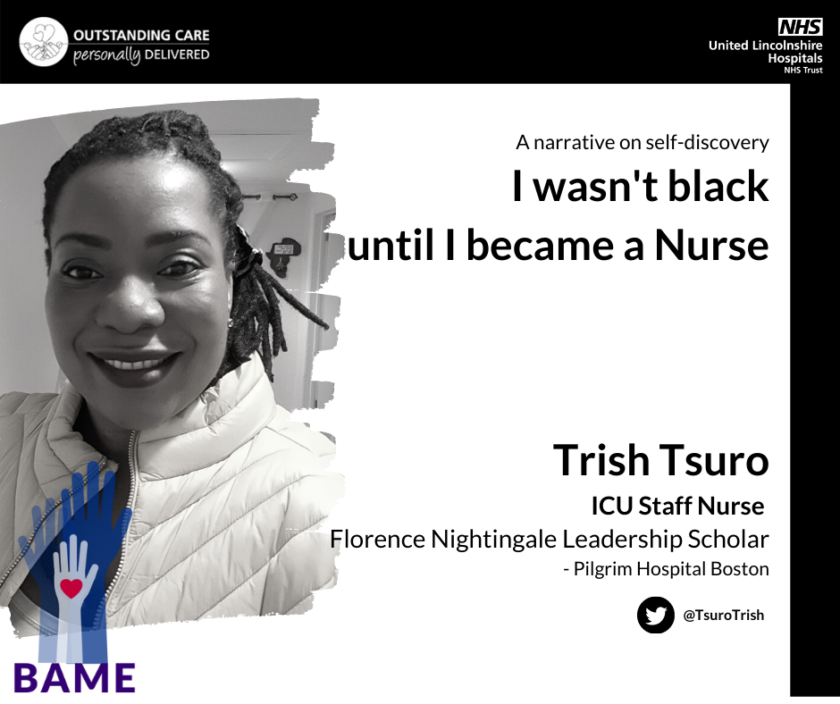
A narrative on self-discovery: I wasn’t black until I became a Nurse
This a statement I find myself saying more and more as the days go by. In the wake of the death of George Floyd, there’s a stirring in my spirit and that of many black people or those who identify as black. And I mean black, not BAME. In my narrative, I insist on specifying BLACK because it’s only in Europe that we are considered an ethnic minority, and therefore lumped together with other races, creeds and religions that exist in a small percentage in white communities. I was born free. “Born-Free” is a real title used for children born after Zimbabwe’s independence and often used to remind us of the privilege of enjoying the fruits of independence.
For my family, that included walking through the CBD unrestricted, going to Les Brown public swimming pool, having picnics or lunch hour breaks in Harare Gardens, going to Greenwood Park on Saturdays or attending A-schools (English speaking schools named after English people. These were the better or best schools, previously reserved for white children). These are examples of the privileges from my childhood that I later learnt were not allowed for black people until the year after I was born. My siblings and I went to Louis Mountbatten Primary School and I even made Head Girl in my last year. The school was located in suburbia and a walking distance from the city centre. There were school buses available to provide commute from surrounding areas. Admission was by way of the vicinity, and to qualify us, my father used his work address to give us a better chance at being accepted. When my neighbourhood friends and families or even my relatives used to say we attended a white school, I used to think they just meant an English speaking school and yet what they actually meant was that we attended white people’s school. (Being caught speaking Shona outside the Shona lesson -30mins in a week- was a taboo!) Therefore, from a young age, I was used to being among other races, religions and speaking the Queen’s language.
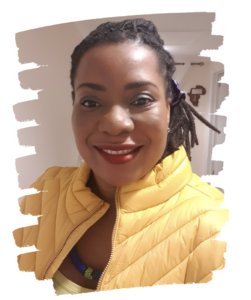 A narrative on self-discovery I wasn’t black until I became a Nurse By the time I started at LMS seven years after independence, there was a buzz about how the white attendance had dwindled since the last headmaster (white) was retiring and a new headmaster (black) was taking over. There was a tremendous shift then, and we saw more black children and less white ones enrol in subsequent years. In fact, the only constant numbers were held by Asian children. This didn’t really affect me as we continued with an already set curriculum, values and ways already set in the foundations of the “English-school”. I remember a lot of the songs that we sang with the innocence of childhood but now I have gained a new understanding of. Waltzing Matilda, Dick Wellington’s Boots, Wade in the Waters, Amazing Grace to name but a few. By the time I left LMS, a lot had changed and the staff and pupils were predominantly black. My baby sister (who is fourteen years younger than me) was transferred to a “whiter” school in her 4th grade because by then, LMS was completely black. My family was not rich and both my parents were civil servants. This was their way of uplifting and placing their children among the crème de la crème even it meant going without the latest cars or fashion having sacrificed their salaries to exorbitant school fees.
A narrative on self-discovery I wasn’t black until I became a Nurse By the time I started at LMS seven years after independence, there was a buzz about how the white attendance had dwindled since the last headmaster (white) was retiring and a new headmaster (black) was taking over. There was a tremendous shift then, and we saw more black children and less white ones enrol in subsequent years. In fact, the only constant numbers were held by Asian children. This didn’t really affect me as we continued with an already set curriculum, values and ways already set in the foundations of the “English-school”. I remember a lot of the songs that we sang with the innocence of childhood but now I have gained a new understanding of. Waltzing Matilda, Dick Wellington’s Boots, Wade in the Waters, Amazing Grace to name but a few. By the time I left LMS, a lot had changed and the staff and pupils were predominantly black. My baby sister (who is fourteen years younger than me) was transferred to a “whiter” school in her 4th grade because by then, LMS was completely black. My family was not rich and both my parents were civil servants. This was their way of uplifting and placing their children among the crème de la crème even it meant going without the latest cars or fashion having sacrificed their salaries to exorbitant school fees.
I then went to a boarding school for my secondary education, Monte Cassino Girls that was run by German and Australian nuns. The headmaster was black and so was the majority of the teaching staff, with a few white teachers who were the white nuns and priest. This was an English-speaking school, as being caught speaking in Shona outside the Shona lessons was, again, a punishable offence. I think we had one or two one-hour Shona lessons a week. And we actually LEARNT our own language and culture because we really didn’t know it, yet we could reel off English proverbs, sayings and even cultures as naturally as they came, and to this day, that still blows my mind!
At Monte, I met many other girls who had attended white schools, some of them even whiter than LMS. I clicked and easily related to these girls. There were other girls from B schools (located in high-density suburbs or colloquial ghetto) and even rural schools located in villages and farm compounds, who spoke differently and didn’t have a problem with shaving their hair off as that was already a culture they had observed throughout their education. At first, I was very conscious of these girls. To my ear, their accents were very heavy and sometimes their spoken English was broken, yet there was a resilience and pride that I saw in them that lacked in me and those I had related to. They reminded me of some of the children I had played with at home after school on days that I did not stay for after school clubs at Louis Mountbatten or they were not hot-seating, the B school goers. Former A scholars had a sense of superiority; these girls had a sense of command. My black education was about to begin.
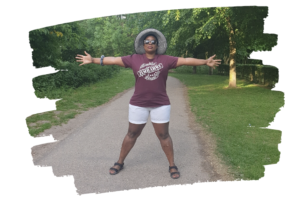 By the time I went to high school, I had grown a certain maturity on the ‘different shades of black’ and it was only much later in life, reminiscing with former schoolmates, that I realised many of us got schooled just by being in that enclosed environment with girls from different backgrounds. I was, however, not prepared for the male versions of these different backgrounds. Pour testosterone into the sense of command and garnish with the knowledge of history, and you will be met with a mentally astute and emotionally resilient individual. There were no rules about English speaking at high school, wait… I think there might have been but had been challenged before my arrival! I know lessons were definitely delivered in English. Here, all staff and all pupils were black but the boarders (that’s me and 199 other A-Level students) were largely from white-washed mission schools or came from the white-washed neighbourhood. However, you could tell that on the brink of adulthood, many at this point were making steps to define who they were and wanted to become. As for me, I just wanted to get through A-level and did so as an average student, laissez-faire. I didn’t go to university after my A-levels but took up employment with Standard Chartered Bank. My first manager was a white man/woman, at a branch that was in a largely white community. By this time, whites were WAME, of White and Asian Minority Ethnicity (see what I did there), so if you were going to find white people in Harare, it would be, and is, around the Borrowdale and Arundel area. This was where I worked for the first two years of my working life. I was comfortable. I was used to the presence of white or white references in word and deed. But I became aware that this was NOT mutual with the adults I worked with or came across. I was called “born-free” more times than I’ve had any racial names here. I felt a little lost therefore started reading up on some history. I had never done history in school apart from snippets we read as part of comprehension lessons in English classes.
By the time I went to high school, I had grown a certain maturity on the ‘different shades of black’ and it was only much later in life, reminiscing with former schoolmates, that I realised many of us got schooled just by being in that enclosed environment with girls from different backgrounds. I was, however, not prepared for the male versions of these different backgrounds. Pour testosterone into the sense of command and garnish with the knowledge of history, and you will be met with a mentally astute and emotionally resilient individual. There were no rules about English speaking at high school, wait… I think there might have been but had been challenged before my arrival! I know lessons were definitely delivered in English. Here, all staff and all pupils were black but the boarders (that’s me and 199 other A-Level students) were largely from white-washed mission schools or came from the white-washed neighbourhood. However, you could tell that on the brink of adulthood, many at this point were making steps to define who they were and wanted to become. As for me, I just wanted to get through A-level and did so as an average student, laissez-faire. I didn’t go to university after my A-levels but took up employment with Standard Chartered Bank. My first manager was a white man/woman, at a branch that was in a largely white community. By this time, whites were WAME, of White and Asian Minority Ethnicity (see what I did there), so if you were going to find white people in Harare, it would be, and is, around the Borrowdale and Arundel area. This was where I worked for the first two years of my working life. I was comfortable. I was used to the presence of white or white references in word and deed. But I became aware that this was NOT mutual with the adults I worked with or came across. I was called “born-free” more times than I’ve had any racial names here. I felt a little lost therefore started reading up on some history. I had never done history in school apart from snippets we read as part of comprehension lessons in English classes.
In my 3rd year with the bank, I started dating my husband, who at that time left for the UK. He eventually asked me to marry him and I moved to the UK with him soon after we got married. I started to live my Geography and English lessons. I laughed at how a lot here was similar to Harare, particularly the education system…duh! COLONISATION!!! I was disappointed to know that most of the people here didn’t know (or care) about Louis Mountbatten, Admiral Tait, Lord Malvin, Alan Wilson, Lord Marlborough or many other English people that our A-Schools had been named after! It was bitter pill to swallow that NVQs were preferred over my Cambridge GCSEs! I remember saying that we prayed for the Queen and her country at my primary school assemblies and pledged to serve her at every Girl Guide meeting! My work colleagues in England were surprised and found it funny when I told them these things. (My Grade 1 class photo is exactly like my daughter’s first day of school photo, uniform and hairstyle. It was only after I sent it to my mum and my husband pointed out the similarities.) I was comfortable. It was just like being home…or so I thought. Naive…I know! The fact that my daughter was the only black girl in her stream was just that, a fact! I had stopped worrying about that when she settled in nursery school years earlier and we had kind of gotten used to being the minute minority. I accepted this as part of being a foreigner. I was in their country.
My turning point was very slow. I took questions and comments about my hair, food and lifestyle as mere curiosity. I offered my arm as ‘rule of tan’ for my white colleagues who had come from holiday or spent their days off in the garden. I accepted compliments on how well-spoken I was/am with a smile and sometimes cheeky retort of how my maternal grandfather insisted on all us learning and speaking English from a young age because the secret to success, according to him, was being able to communicate with the white man. I laughed at jokes about the mispronunciation of names without hesitation. I even frowned at attempts by other people of colour to get cliquey because “They are not like us, my sister.” For years, I saw any racial or discriminatory remark as curiosity or misunderstanding, and most of the time I did not even recognise them as forms of racism. I was so keen to integrate and engage with non-blacks because I felt that was the right thing to do.
When I became a British citizen 6 years ago, at the welcome ceremony, the Mayor said that I did not need to strip off my origin, race or culture, but instead was asked to respect the ways of the land and nation that I had chosen to become a dual citizen of, at quite a significant cost I might add. That sounded like a good deal, and the least they could do for a citizen of a once Commonwealth country, better still, a country they had colonised and plundered. I know now that many white British are sadly unaware of this arrangement. The fact was and is, my being black was of no significance in Zimbabwe, I did not see why it should be here.
I did my nursing degree at a local university, as a mature student with a young family. Not an easy task but I completed successfully. I remember campaigns to support BAME students but I did not engage with these because I was blinkered. Anything that separated people by colour, even to my advantage, was unwelcome to me. I refused to be seen as a colour, therefore I did not engage. When I was denied time off to go to Zimbabwe for my late sister’s memorial, I did not see this as racism or discrimination, I thought they were just being strictly unfair about taking time off during term time. Yes, l was laughable!
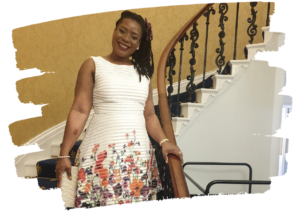 I graduated and became a registered nurse with pride. I went into nursing with all the eagerness of a newly qualified, freshly-baked nurse despite my age (I graduated with people 12 years younger than me –on average). It was here that the title BAME seemed to precede my name like a title. All of a sudden, maybe it was not even all of a sudden, I was a BAME nurse, or referred to as BAME staff or BAME person. Suddenly, I WAS BLACK, and it was the first thing people saw when they looked at me. Please do not get me wrong. I have always known that I am black, of the Black African race. I thought this was a mention purely for census purposes. Now I was a BAME nurse whose blackness was seen as a handicap. Black needed help, black needed protection and black needed to be heard.
I graduated and became a registered nurse with pride. I went into nursing with all the eagerness of a newly qualified, freshly-baked nurse despite my age (I graduated with people 12 years younger than me –on average). It was here that the title BAME seemed to precede my name like a title. All of a sudden, maybe it was not even all of a sudden, I was a BAME nurse, or referred to as BAME staff or BAME person. Suddenly, I WAS BLACK, and it was the first thing people saw when they looked at me. Please do not get me wrong. I have always known that I am black, of the Black African race. I thought this was a mention purely for census purposes. Now I was a BAME nurse whose blackness was seen as a handicap. Black needed help, black needed protection and black needed to be heard.
For a while, I seriously could not understand why everybody was not being treated the same. I could not understand why it was colour over merit. I could not understand why anybody had to mention colour or creed in anything, and frankly, I found it extremely demoralising. I had a slight altercation with a colleague of seniority over organisational politics. I remained professional about it, but they took it very personal. I didn’t know quite how much until they told me that had their father been alive, he would have let rip…because he had been an outright racist who called black people anything under the sun! This left me troubled for several reasons. First, why would their father get involved in work matters? Secondly, had she just threatened me? Lastly, would she have liked to say these racist things to me so much as to wish her deceased father’s racist stance upon me? I remember feeling like I had been abused and degraded right there on the spot. In fact, it got me thinking whether our altercation was actually because of my colour rather than the situation. It was one of those moments of realisation that my colour was now the highlight of my existence. I did not like that. After years of not wanting to be defined by my race, here I was, totally BLACK.
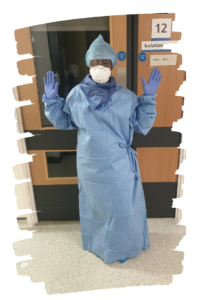 Once the seed was sown, it was watered by different gardeners with the best intention to nurture and protect and yet I felt vulnerable and exposed. I now felt as if I had a bull’s-eye on my forehead, and the arrow ready to shoot but the drawstrings continuously retracted with every mention of BAME. I noticed the white staff, or non-BAME staff as they are called, took offence to this collective title and ‘favours’, spurring on more racial remarks and comments. It was a no-win situation. Regardless of my hunger to be recognised for my merit, I started to learn that justice did not favour my race. The revelation was and is painful. The disparities, disproportions and discriminations are everywhere. I began to educate myself, from scratch. For the sake of my children, I started to learn. I had distanced myself from black history so much that I had shut out lessons that could have changed me earlier on in life and prevented this bereavement I now have in the killing of George Floyd. It used to be an American problem as far as I was concerned.
Once the seed was sown, it was watered by different gardeners with the best intention to nurture and protect and yet I felt vulnerable and exposed. I now felt as if I had a bull’s-eye on my forehead, and the arrow ready to shoot but the drawstrings continuously retracted with every mention of BAME. I noticed the white staff, or non-BAME staff as they are called, took offence to this collective title and ‘favours’, spurring on more racial remarks and comments. It was a no-win situation. Regardless of my hunger to be recognised for my merit, I started to learn that justice did not favour my race. The revelation was and is painful. The disparities, disproportions and discriminations are everywhere. I began to educate myself, from scratch. For the sake of my children, I started to learn. I had distanced myself from black history so much that I had shut out lessons that could have changed me earlier on in life and prevented this bereavement I now have in the killing of George Floyd. It used to be an American problem as far as I was concerned.
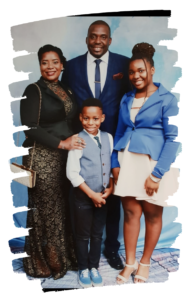 As a nurse, a wife to a tall black man and a mother to a cute boy (for now), the image of a policeman preventing oxygen from entering a grown man’s lungs while he called out to his dead mother and begged for breath, is harrowing and awakening. I shall no longer go about without colour because sadly, colour is what the world sees. I will however accompany my colour with character and merit, so that one day, it will be associated with just that. For my children, Floyd’s children and all their children’s children. As the statues of oppressors and racists fall, so will my ignorance. Many of these I did not even know of until this last week. We cannot change history, but we can certainly change the future. I am grateful for those who saw beyond my colour because they give me hope that it is possible and can be done. I am also grateful for those who insisted that I saw my colour because now I will not go about with my head in the clouds. I can no longer pretend that my colour does not affect opportunities, promotions and awards. It’s absurd that it even affects my health in light of COVID-19! Change is coming. Change is now. Change is me.
As a nurse, a wife to a tall black man and a mother to a cute boy (for now), the image of a policeman preventing oxygen from entering a grown man’s lungs while he called out to his dead mother and begged for breath, is harrowing and awakening. I shall no longer go about without colour because sadly, colour is what the world sees. I will however accompany my colour with character and merit, so that one day, it will be associated with just that. For my children, Floyd’s children and all their children’s children. As the statues of oppressors and racists fall, so will my ignorance. Many of these I did not even know of until this last week. We cannot change history, but we can certainly change the future. I am grateful for those who saw beyond my colour because they give me hope that it is possible and can be done. I am also grateful for those who insisted that I saw my colour because now I will not go about with my head in the clouds. I can no longer pretend that my colour does not affect opportunities, promotions and awards. It’s absurd that it even affects my health in light of COVID-19! Change is coming. Change is now. Change is me.
My name is Trish, and I am black.
ICU Staff Nurse
Florence Nightingale Foundation Windrush Leadership Alumna
This blog piece was written by Trish and edited by NHS United Lincolnshire Hospitals team.